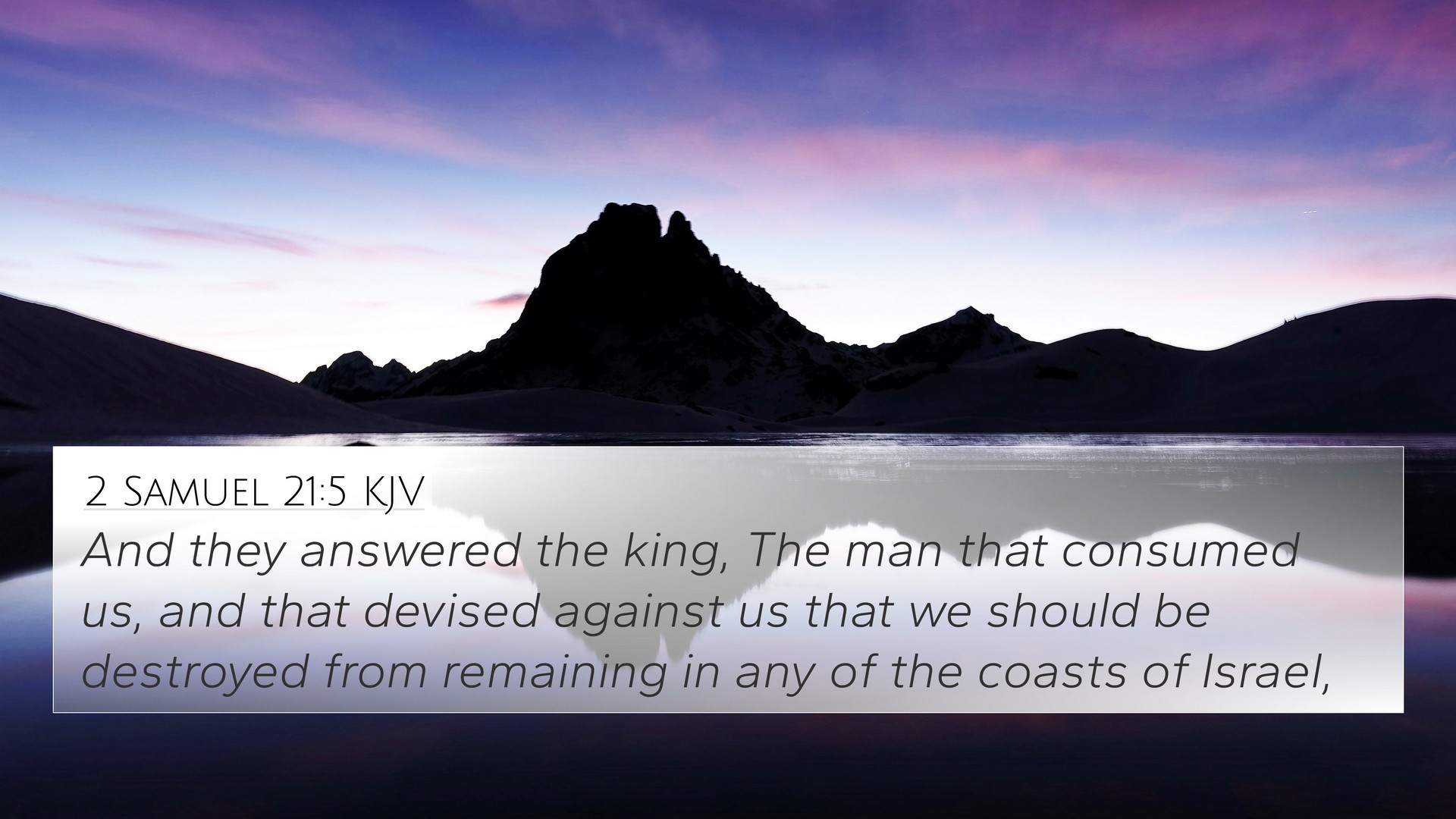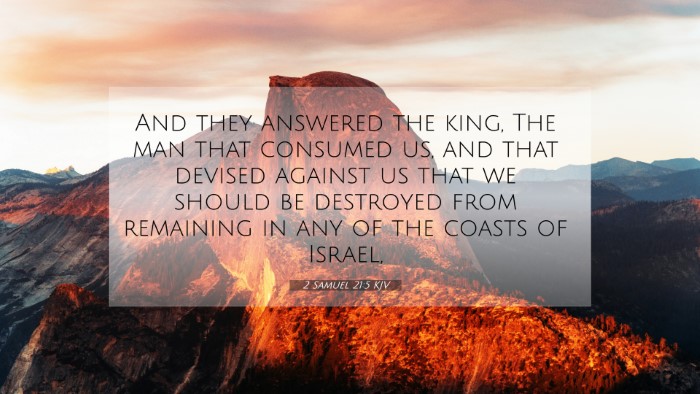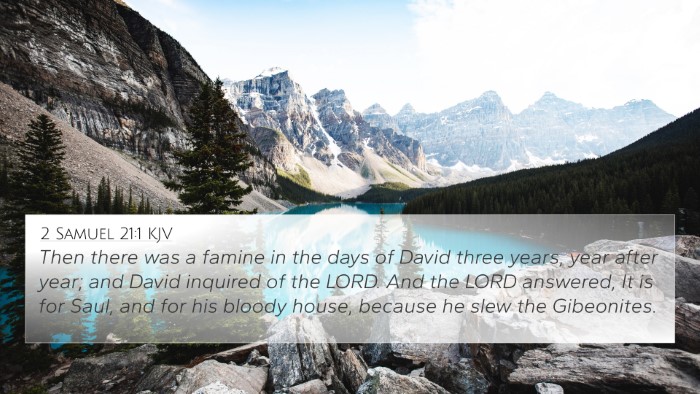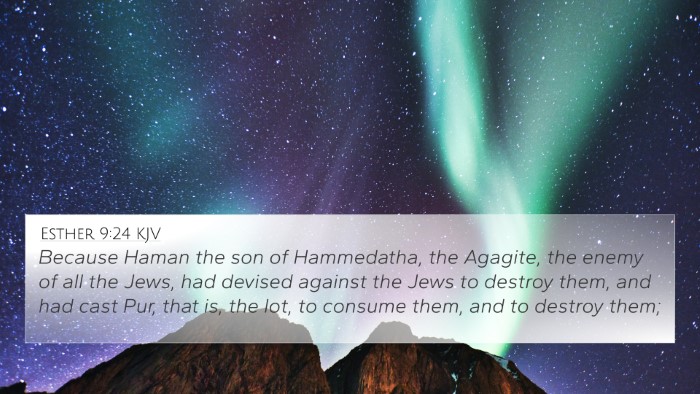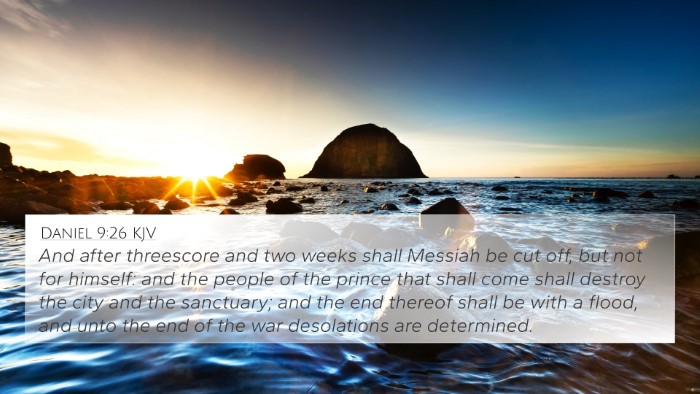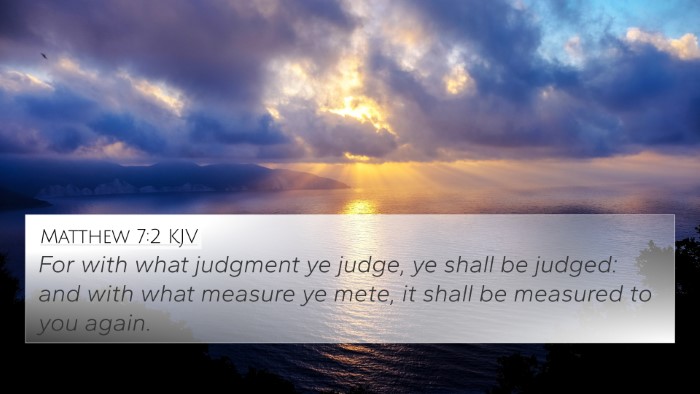Understanding 2 Samuel 21:5
Verse Reference: 2 Samuel 21:5
2 Samuel 21:5 reads: "And they answered the king, The man who consumed us, and who devised against us that we should be destroyed from remaining in any of the coasts of Israel, let seven men of his sons be delivered unto us, and we will hang them up unto the Lord in Gibeah of Saul, whom the Lord did choose." This verse addresses the profound themes of justice, retribution, and the consequences of sin within the Israelite community.
Commentary Insights
The commentaries by Matthew Henry, Albert Barnes, and Adam Clarke provide multiple insights regarding this verse:
- Matthew Henry's Commentary:
Henry emphasizes the significance of justice in the community, highlighting that the request for the seven sons was made as a means to appease God’s anger following Saul's transgressions. The act of delivering up these individuals reflects an understanding of divine judgment and a desire to restore national favor with the Lord.
- Albert Barnes' Notes:
Barnes notes that the reference to "the man who consumed us" specifically pertains to Saul’s previous actions against the Gibeonites. His commentary explains how Saul's violation of an oath led to severe consequences for the nation. The demand for seven descendants indicates the gravity of Saul's sins and the principle of collective punishment in ancient Israelite law.
- Adam Clarke's Commentary:
Clarke elaborates on the cultural backdrop in which this event takes place, suggesting that the practice of handing over descendants for punishment was not only a method of atonement but also illustrates the communal responsibility for individual sins.
Thematic Analysis
This verse can be grouped within a larger thematic framework that connects various Scripture passages concerning justice, guilt, and societal responsibility for sin. Below are some of the interlinked themes from different verses:
- Covenantal Responsibilities:
Exodus 20:5: Highlights the generational consequences of sin.
- Divine Justice:
Galatians 6:7: "Whatever one sows, that will he also reap," reinforcing the principle of retribution.
- Collective Punishment:
Joshua 7:1: The sin of Achan brings trouble upon the whole community.
- Sin and Consequences:
Romans 5:12: Sin enters the world through one man, affecting all humanity.
- Divine Choice:
Psalm 105:26: God's choice of messengers who might suffer for others.
- Bloodguilt:
Numbers 35:33: Discusses the concept of bloodguilt in the land.
- Retributive Justice:
Deuteronomy 19:21: Establishes the principle of "an eye for an eye" in justice.
- Nation's Accountability:
2 Chronicles 7:14: Calls for a humble stance of the people in seeking God's mercy.
Cross-Referencing Insights
To fully grasp the depths of 2 Samuel 21:5, one can employ tools for Bible cross-referencing. Key methodologies that promote deeper understanding of Scripture include:
- Using a Bible Concordance: Helps locate verses related to specific keywords and concepts.
- Bible Cross-Reference Guide: Provides contextual links that illustrate how different Scriptures speak to each other.
- Comparative Bible Verse Analysis: Critical for exploring parallel themes across both Testaments.
- Cross-Referencing Bible Study Methods: A systematic approach to analyze the connections between verses.
- Comprehensive Bible Cross-Reference Materials: Rich resources that facilitate in-depth study of biblical correlations.
Conclusion
2 Samuel 21:5 serves as a poignant reminder of the seriousness of sin and the intricate relationship between individual actions and communal consequences. Through insights provided by reputable public domain commentaries and a comprehensive network of cross-references, readers can appreciate the depth of God's justice as demonstrated in this scriptural account.
By understanding the connections between Bible verses, we can better grasp the theological and moral lessons inherent in the Scriptures, ensuring that our study is enriched by the contextual relationships between these sacred texts.
